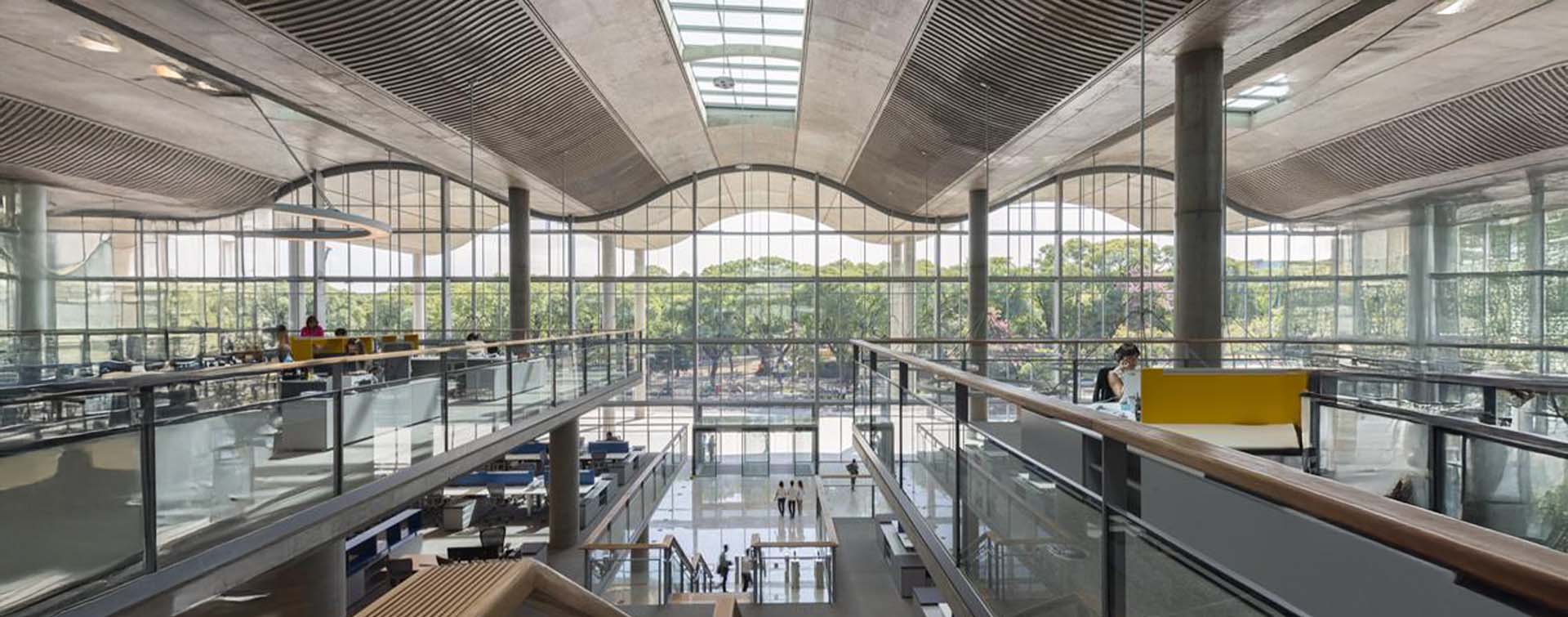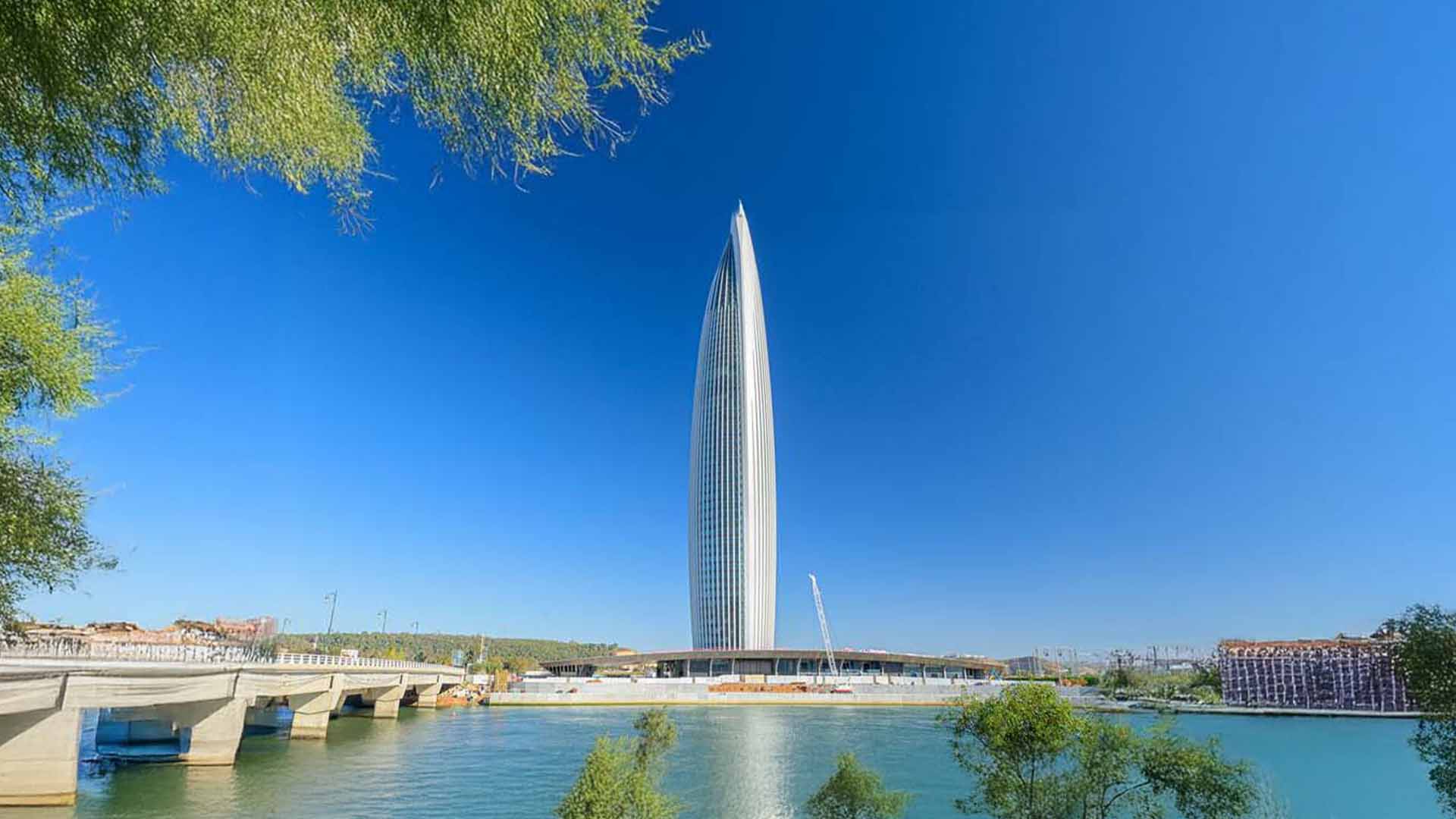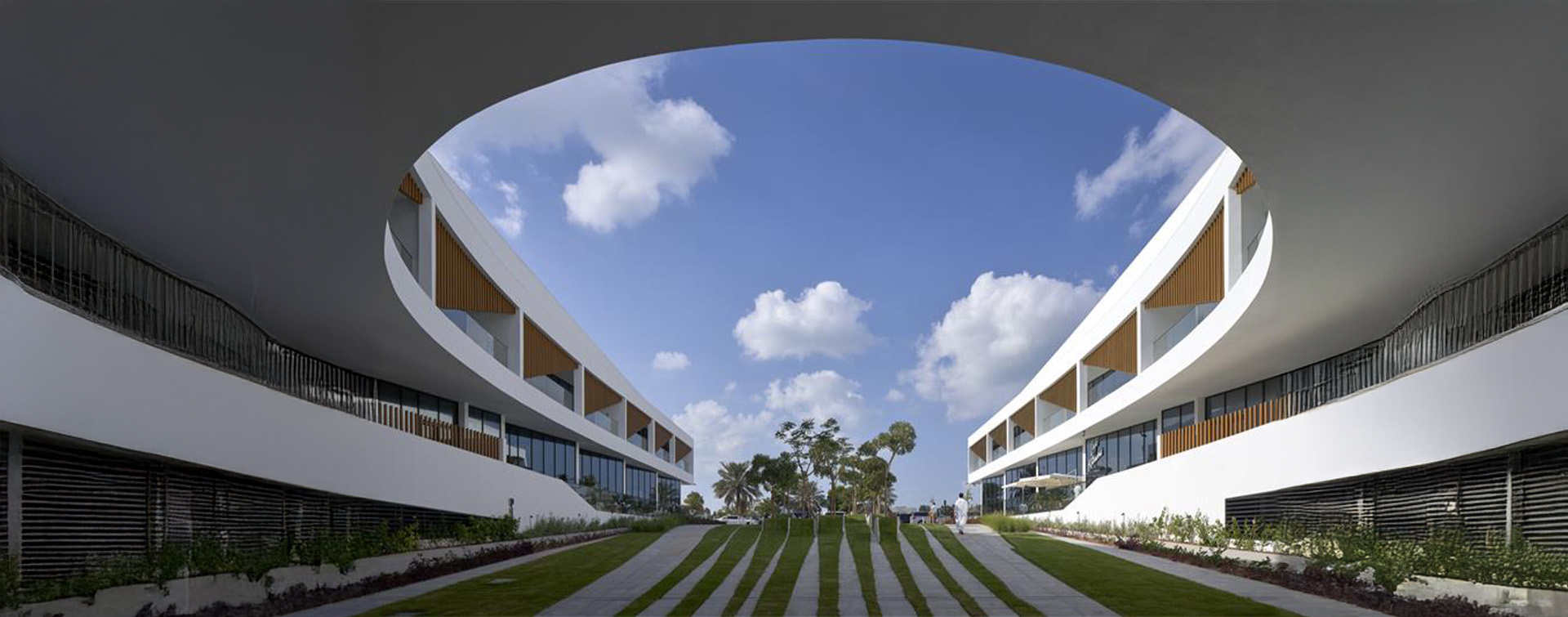 4 min
4 min
Focus on Milan, a dense metropolis confronted, like many others, with problems such as heat islands, scarce and expensive land, air pollution, flood risks, and a lack of green areas. Faced with these challenges, the capital city of Lombardy is actively committed to sustainable construction, promoting local cooperation and the development of affordable social and student housing. Among these initiatives, discover three prize-winning projects at Reinventing Cities.
Aria – Ex Macello: Milan’s first carbon-negative district
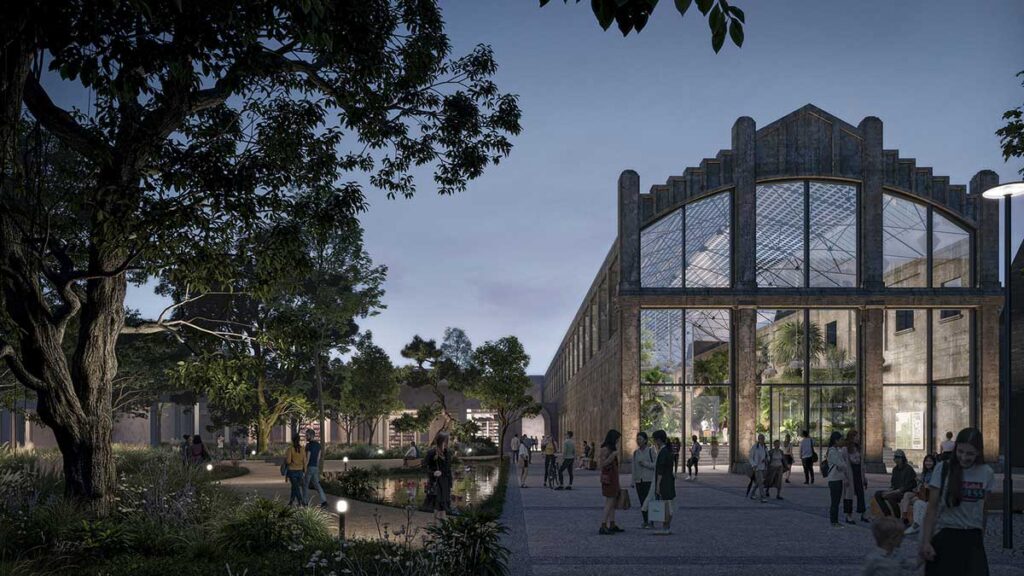
Milan’s first carbon-negative district, the Aria Ex Macello project will soon emerge on the 15-hectare site of a former abattoir (“macello”), which had been left abandoned for 20 years. It includes more than 1,000 affordable housing units, an international design campus (IED – Istituto Europeo di Design), a science park, workspaces and numerous green areas. The project is aiming for a 52% reduction in carbon footprint compared with a standard scenario.
- Reuse of more than 30,000 m² of existing structures
- Preservation and renovation of historic buildings
- Use of at least one-thirdrecycledmaterials
- Off-site construction
- Timber construction for one-third of the new buildings
- Use ofeco-pozzolanic cement
- Creation of a local power grid (Ectogrid d’E.ON)
- Ambitious waste management plan with on-site recycling micro-factories
- “Air Factory” : an innovative air purification system
- Reuse of groundwater from the Borgognone river, reducing per capita water consumption by 30%.
Architectes : Snøhetta Oslo AS, Barreca & La Varra, Cino Zucchi Architetti s.r.l., Stantec S.p.A., Chapman Taylor Architetti S.r.l.
Innesto – Scalo Greco Breda: Italy’s first zero-carbon social housing project
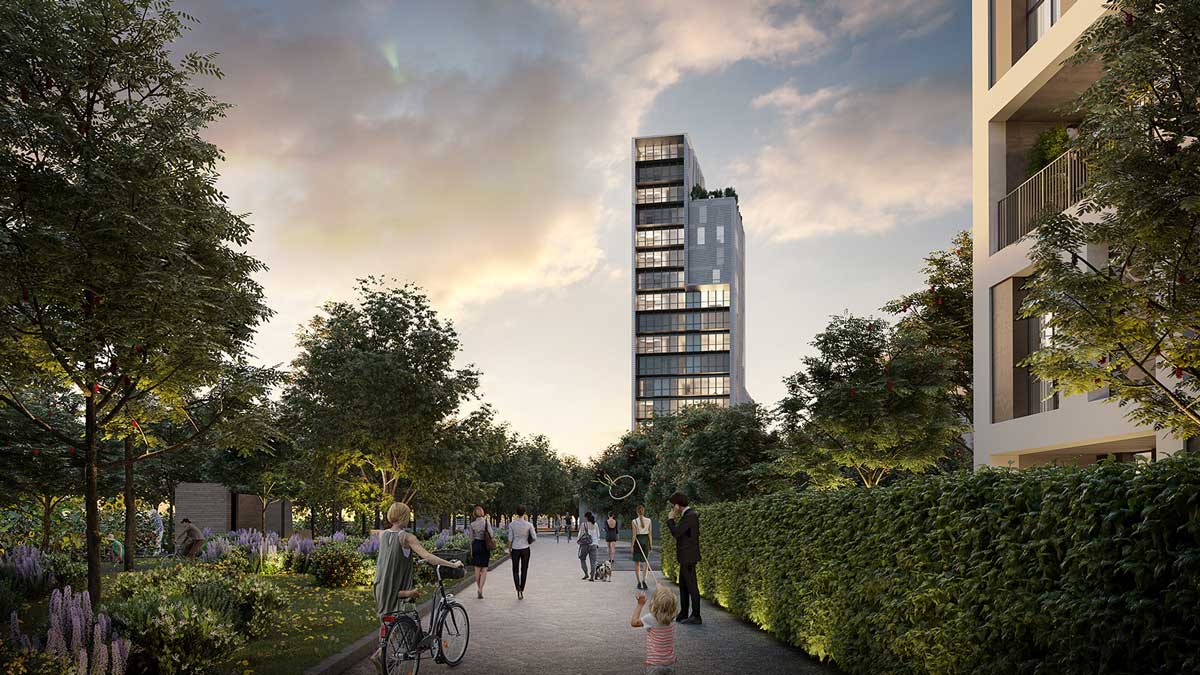
Crédit : Architect : Barreca & La Varra – Masterplan : Barreca & La Varra Arup
Innesto is Italy’s first zero-carbon social housing project, a showcase for Milan’s new sustainability strategies. Located on the site of a former marshalling yard (Greco Breda, 6 ha), this project is part of a plan to transform disused railway infrastructure in Milan. Its three plots include 330 housing units, a 445-bed university residence and 9,000 m² of service areas, organized around meeting places (arcades, squares, broletti) to enrich community life. The aim is to create an environment rich in biodiversity, comparable to an urban forest, and to achieve carbon neutrality within 30 years.
- Italy’s first zero-carbon social housing project
- Nearly Zero Energy Buildings (NZEBs) built using optimized mix of bio-sourced materials, minimizing CO2 and waste, and facilitating disassembly and 100% recycling.
- Minimal earthworks, bioremediation of the soil and its reuse for landscaping.
- Creation of a Circular Economy District promoting the circular economy and local jobs
- 4th-generation district heating network, powered by renewable energies, notably wastewater heat recovery
- Preservation of existing farmland, developed as an “agricultural heartland” incorporating green roofs, vegetable gardens and edible landscapes.
- An ambitious sustainable mobility strategy: limited parking spaces, a large bike park (1,200 m²), electric vehicle charging terminals and a car-sharing fleet
Architect: Barreca & La Varra
Co-Inventing Doria: a symbol of sustainable urban renewal
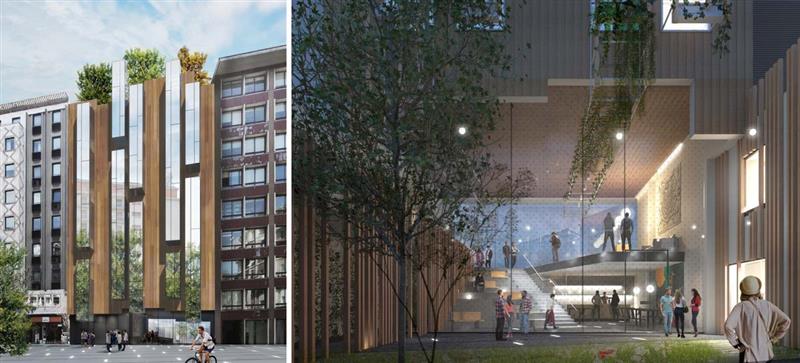
In the heart of Milan, a stone’s throw from Corso Buenos Aires and the central rail station, the “Co-Inventing Doria” project will transform a modest 610 m² wasteland, currently used as a parking
lot, into a symbol of sustainable urban renewal. It will include the construction of a 9-floor (5,000 m²) carbon-neutral youth hostel with public green areas at street level.
The innovative “breathing walls” recover energy and filter the air. This system, combined with high-performance insulation and controlled ventilation (A.M.I.C.A.), will minimize the building’s energy requirements. Open to domestic and international customers, the hostel is designed to be a forum for exchange between travelers and residents.
- Modular design for flexibility of use and adaptation to future needs. The room furniture is also modular, favoring wood and natural fibers for easy reuse and adaptation to different configurations
- High proportion of recycled materials (55% for the concrete, 96% for the steel) in the foundations and first floor
- An innovative “beathing wall” that recovers energy and filters the ventilation air
- Clean energy production with rooftop photovoltaic panels (22 kW) and a water-to-water heat pump (300 kW)
- Use of bio-sourced materials (wood and natural fibers) for more than 50% of the structure, shell, slabs and walls
- Mineral paints with low VOC content and decontaminating properties are used for the finishing
- Soft mobility strategy, promotion of social cohesion and an eco-friendly lifestyle (information for residents, information on the vegetation from a dedicated app, smart parking, local food shopping)
Architects: Ambrogio Risari – DRM Architettura, Emanuela Sara Cidri, 16bis Studio
Team representative: FONDO IMMOBILIARE LOMBARDIA, MANAGED BY INVESTIRRE SGR AND ADVISED BY FONDAZIONE HOUSING SOCIALE.
Environmental experts : ARUP Italia Srl.






